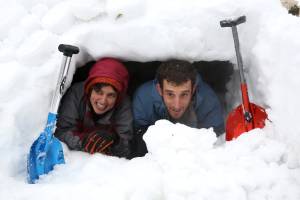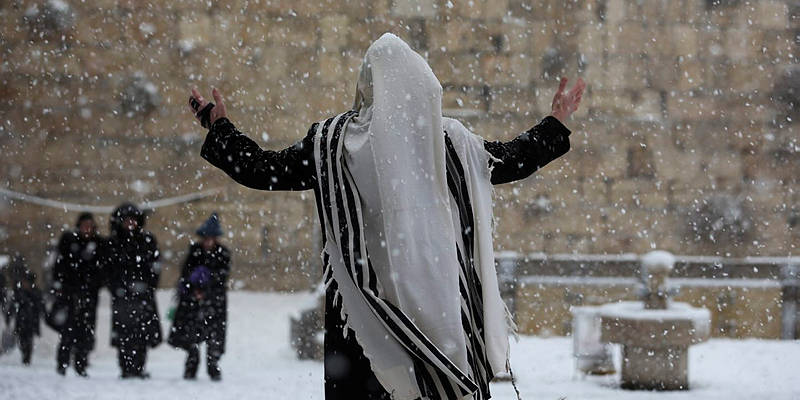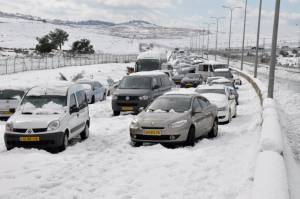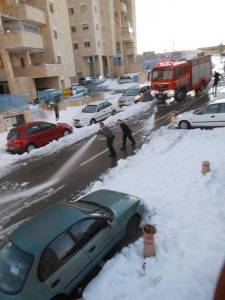Israelis in Jerusalem, Gush Etzion, the Golan and other mountainous areas brace themselves for a winter storm that threatens to down trees, close roads and cut power.
Whenever the US begins talking about restarting “peace negotiations.” Israeli citizens living in Judea and Samaria brace themselves for another building freeze. And this week, on the heels of the defeat of the PA statehood bid at the UN and threats of taking Israel to the International Criminal Court, there is talk in Jerusalem of freezing PA tax revenues.
But the freeze that has most Israelis in a panic this week is the one set to occur on Wednesday and Thursday. Meteorologists are predicting heavy winds and snow to hit all of Israel except along the coast and lower-lying areas.
No one can know for sure, but the weather gurus are predicting snow accumulation above 600 meters in elevation. With Jerusalem’s elevation at 754 meters, predictions are for accumulations of 2-6 inches. The Gush Etzion area, at an elevation of 800-1000 meters, is expected to get 6-10 inches or more.
Heavy snowstorms, while somewhat rare in Israel, do occur. Last year the Jerusalem area saw a large dump of snow early in the season, as it did in the winter of 2006-2007 as well.
The Snow Pilgrimage
Israelis tend to behave as though each snow storm is the first in history. More amusing, though, is the way they react to the downfall. Often, after a big snow storm ends, there are terrible traffic jams leading into Jerusalem and Gush Etzion as Israelis from outlying areas – especially from the coast, where it does not snow – make their way to the capital to get a glimpse of the cold white stuff. It’s almost like a religious pilgrimage.

Jerusalemites pose for a photo inside an igloo they built in the snow in Sacher Park after a major snow storm. (Photo: Nati Shohat/Flash 90)
For immigrants from colder climates, such as much of the northern United States and Canada, the scene is almost surreal, with people parking on the side of the road in order to build snowmen and have snowball fights. In fact, it seems that nothing unites Israel’s diverse population more than a snow storm. From secular to ultra-Orthodox, everyone gets in on the act.
And then there are the pictures of the fire department hosing down roads in order to clear them of snow, as American immigrants shake their heads in disbelief. Is it ignorance or Israeli optimism? Perhaps they prefer to believe that the worst is over and that all that water could not possibly freeze into an ice-skating rink overnight!
In addition to the grocery stores looking like a week before a war, with people rushing to buy supplies, the hardware stores experience a run on flashlights and gas-fueled heaters as customers prepare for the possibility of several days without electricity.
Not only Israelis are bracing for the worst while waiting for the storm to arrive. Even the US embassy issued a warning this past week to citizens traveling in the area: “If you are required to travel under these conditions, ensure your vehicle has a full tank of fuel. Pack warm winter clothing, boots, water, shovel, and emergency food supplies in the event you are stranded.”
The warning, while at first glance may seem a little over the top, is actually quite appropriate. Because such storms are so infrequent, the country is ill-equipped to get roads cleared quickly, and the mountainous terrain adds to danger of driving on uncleared roads.
Although the coming storm poses some real concerns, it also offers Israelis a moment to worry about something other than politics.
By Penina Taylor, United with Israel


